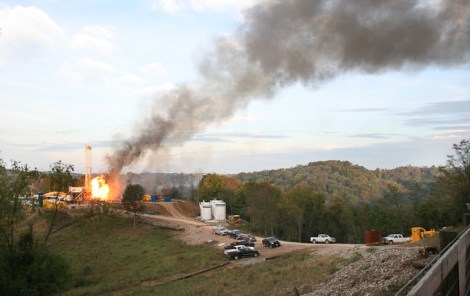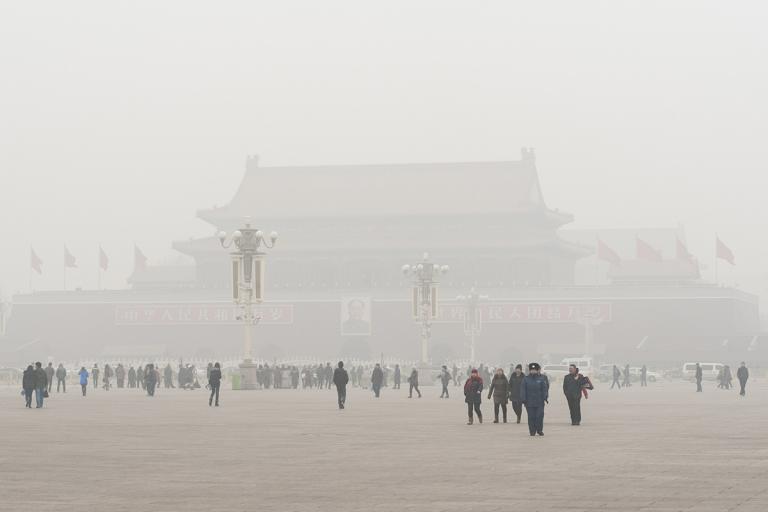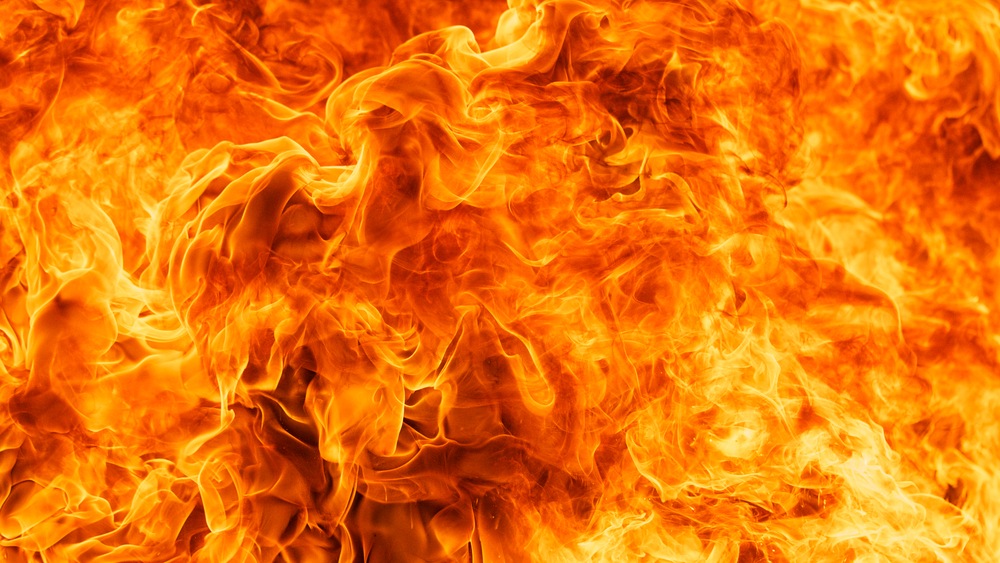Federal investigators are trying to figure out what caused an explosion at a West Virginia fracking site over the weekend. The blast injured at least seven people, including four workers who were sent to a hospital with life-threatening burns.
Residents and activists have long complained about safety practices by frackers operating in the state, where they draw natural gas from the Marcellus shale formation. Traffic accidents involving trucks traveling to and from frack sites in the state are common, and explosions can be deadly.
Hydraulic fracturing was not underway at the time of Sunday’s blast in Doddridge County. The explosion occurred 50 yards away from the work crew and it did not involve the drilling rig. From Reuters:
Two storage tanks containing brine and fracking fluid from the well exploded at 4 a.m. EDT on Sunday Antero spokesman Alvyn Schopp said. Five workers were taken to hospital with burns, he said.
“We do not know the ignition source, but we suspect it was a methane explosion,” said Schopp, vice president at Antero, an oil and natural gas company controlled by Warburg Pincus LLC.
The cause of the explosion remains a mystery, but it could not have come as a huge surprise to fed-up residents of the state.
In April, two workers were killed and two others were injured by an explosion at a frack site in Tyler County, W.Va., though the story was quickly buried amid news of the Boston marathon bombings.
Also in April, AlterNet published a feature article that catalogued frackers’ shoddy safety records in West Virginia, and described the pollution that they cause. The piece includes a series of photographs of accidents, including this photo below, of a fire that burned for more than a week at a well site in September 2010:

Wetzel County Action GroupFire at a West Virginia frack site in 2010.
“It burned for something like nine days,” Ed Wade, the resident who shot the photograph, told AlterNet. “But the [West Virginia Department of Environmental Protection] said there were no cases of air pollution. You believe that?”




